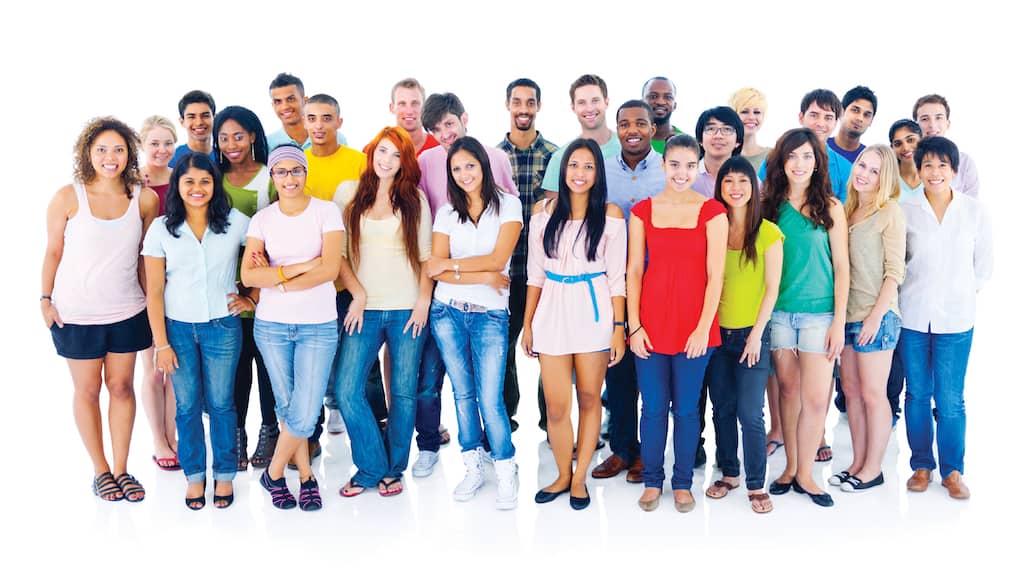Bio-Politics and The Implications of Ideology on Learning

Like much of America, I’m riveted and often revolted by the partisan divide in our country.
For the last two years, I’ve been engaged in a quest for understanding, reading dozens of books and hundreds of articles in an attempt to understand the processes that create diehard liberals and conservatives. Recent forays into the literature have focused on a field called bio-politics, which illuminates the psychological differences between our two political tribes.
There is a connection between this passion project and my usual work in education. I firmly believe the understandings emerging from bio-politics have tremendous implications for how we teach our children.
In brief, biopolitics is a concept based on a range of studies that have found there is a biological basis to political orientation. These studies indicate that the dominant ideology a person identifies with effects their ability to perform certain tasks. In addition, research indicates that a person’s risk tolerance is in part shaped by biology. That too feeds into ideology.
It takes only a short leap to cross disciplines and realize these findings should impact teachers who are seeking to personalize learning or implement Project-Based Learning (PBL) and other inquiry models. Open-ended discussions, student agency, public presentations, iteration, discovery learning, the questioning of authority, etc., can create tremendous anxiety for a significant population of learners. Those of us in the field often hear of student resistance to PBL but we never identify the source, only the symptoms. Bio-politics may provide insight.
Recent research points at significant differences in the cognitive styles of liberals and conservatives. In a piece called Political Conservatism as Motivated Social Cognition, John Jost and his co-authors state that conservatives respond to threatening situations with more aggression than their liberal counterparts. The authors suggest as well that political orientation is associated with psychological processes for managing fear and uncertainty.
According to researcher David Amodio and his team, an array of behavioral studies demonstrate that “conservatives have been found to be more structured and persistent in their judgments and approaches to decision-making, as indicated by higher average scores on psychological measures of personal needs for order, structure, and closure. Liberals, by contrast, report higher tolerance of ambiguity and complexity, and greater openness to new experiences on psychological measures.”
Another line of research has examined personality differences in liberals (empathetic, compassionate, open to new experiences) and conservatives (concerned with order and preserving the existing social structure.)
To be clear, research is not suggesting that opinions on specific political issues are written in a person’s genes. Rather, our genes nudge us to respond cautiously or openly to social experiences. Learning would have primacy among those social experiences.
In a fascinating discussion called Nature, Nurture, and Your Politics, political scientist John Hibbing shared his thoughts with reporter Shankar Vedantam on how our political views are influenced by biology. I am astonished by the instructional implications of this exchange:
Vedantam: The patterns that John and others have identified are more than just curious. These patterns suggest that our model of political differences is wrong in an important way. Liberals and conservatives don’t just have different political preferences. They have different temperaments. Conservatives don’t just care about lower taxes. They also care about whether poetry rhymes.
Hibbing: That’s right. Should poetry rhyme? We also ask you know, are you more comfortable with novels that end with a clear resolution, those kinds of things. And, you know, you can start to see a pattern already, I think, in our discussion, that it is the case that liberals are more likely to say, sure, I’m OK with free verse, whereas conservatives say, no, you know, we really think there should be a pattern. Music should come back to a recognizable melody. Poetry should rhyme. And novels should – should wrap up in a way that we are comfortable with.
Lately, much has been made of the needs of introverts (see the book Quiet by Susan Cain) in the social learning space that envelops inquiry focused classrooms. There are other challenges for this style of pedagogy. If this new research around bio-bio-politics is accurate, teachers must be cognizant of the conservative brains in their classroom and not simply cater to learners with low levels of risk aversion and a lusty attraction to innovation.
This workaround bio-politics and its implications share some features of the coalition that has created the Learner Variability Project. In a report called “Learner Variability Is the “Rule, Not the Exception” author Barbara Pape states: “Edging into the conversation now is the term “learner variability.” It is a recognition that all students differ, and learning sciences research shows that these differences matter for learning. In some cases, the term is tightly defined to mean any student struggling with a learning difference that rubs up against the expectations of the sameness of school.”
That “sameness of school” can describe a pervasive classroom culture or a focus on a dominant pedagogy such as PBL. According to PBLWorks, “Project Based Learning is a teaching method in which students gain knowledge and skills by working for an extended period of time to investigate and respond to an authentic, engaging, and complex question, problem, or challenge.”
That definition appeals to the liberal brain, as defined by biopolitics. Bio-political research should motivate instructional designers and teachers to create and implement scaffolds that allow conservative thinkers to be effective learners in a constructivist environment. Otherwise, the political divide that separates our country will bisect our classrooms and impede effective learning.
For more, see:
- Workplace Education: A Creative Approach to Competency and Project-Based Science
- Studio-Based Learning and Self-Directed Students at NuVu
- Podcast: Randy Fielding on Learning Environments for the Future
Stay in-the-know with innovations in learning by signing up for the weekly Smart Update.







0 Comments
Leave a Comment
Your email address will not be published. All fields are required.